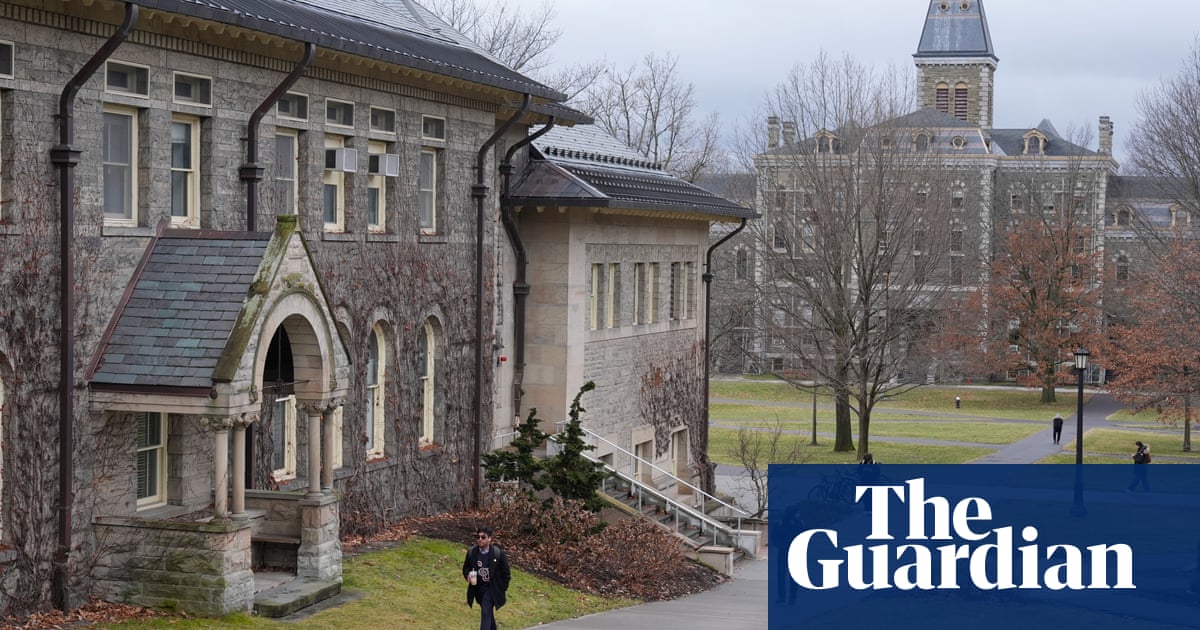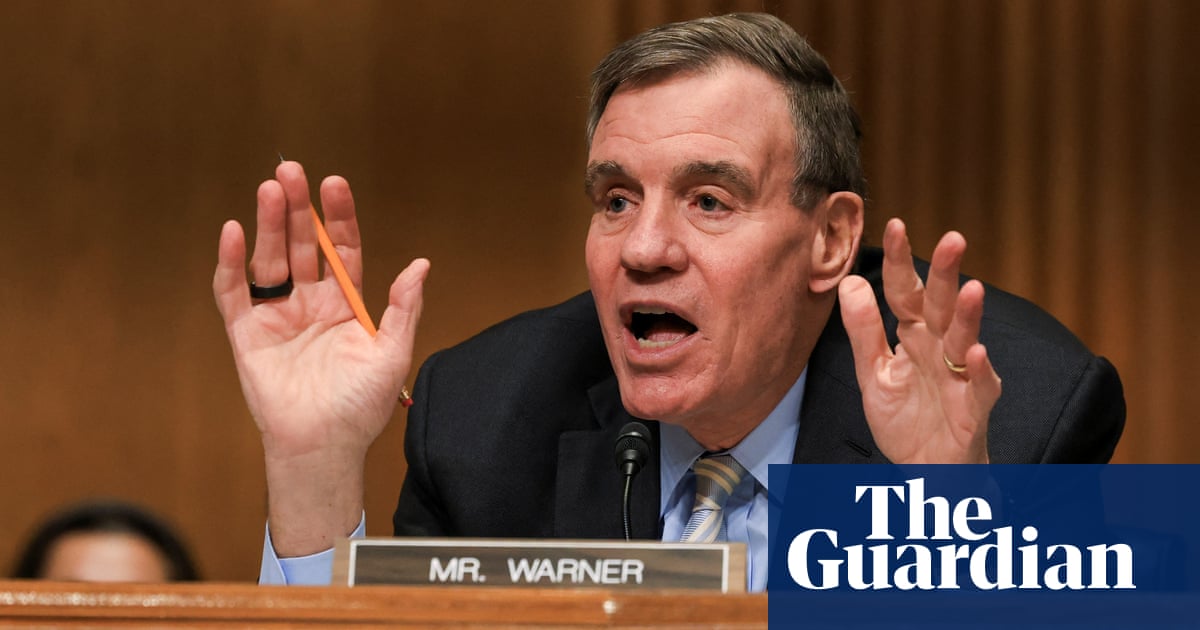David Hogg, a survivor of the Parkland school shooting turned gun safety and youth leadership advocate, has launched a bid for one of the Democratic National Committee’s vice-chair positions, arguing the party needs to move in a bolder and more anti-establishment direction as it braces for Donald Trump’s return to the White House.
Hogg announced on Monday that he would seek one of the party’s top leadership posts due, in part, to his frustration with a lack of accountability among prominent Democrats following Kamala Harris’s loss in November’s presidential race.
“I’m trying to take that accountability myself and realize it does not make us weaker as a party [or] as a person,” Hogg told the Guardian before his announcement. “It’s an essential part of leadership, just talking about what we could have done differently, so we can build a better future, so that something like this never happens again.”
Hogg may face an uphill battle in claiming one of the committee’s four vice-chair posts when the party holds its leadership elections on 1 February. At least three other candidates have already launched bids for the vice-chairperson seats: Joe Barbuto, chairperson of the Wyoming Democratic party; Shasti Conrad, chairperson of the Washington state Democrats; and James Zogby, a pro-Palestinian advocate and longtime committee member.
But Hogg, who co-founded the gun safety group March for Our Lives before creating the grassroots organization Leaders We Deserve, believes Democrats need fresh voices at the decision-making table to win back young voters, who moved sharply to the right in this year’s elections. In 2018, young voters preferred Democrats by a 35-point margin, according to an analysis from Tufts University’s Center for Information and Research on Civic Learning and Engagement. In 2024, that margin fell to just four points, the center found.
“That is a crisis. We cannot win without young voters,” Hogg said. “And I think it’s become evidently clear that it is time for young people to have a real place in the party – and not just symbolic ones, but an actual position of power.”
Hogg has several ideas about how Democrats lost not only the White House but also both chambers of Congress in the November elections. He criticized Democratic leaders for creating an echo chamber within the party, leaving them disconnected from voters’ top concerns and priorities like inflation.
“When people are feeling like the economy is not going well, our message should not be: ‘No, you don’t understand. Look at how much worse off all these other countries are in the G7,’” Hogg said. “It comes down to making sure that we are not choosing to live in a comfortable delusion and actively choosing to live in an uncomfortable reality where we might actually be able to win.”
Hogg also fears voters now associate Democrats with the institutions that they have come to distrust while Republicans have adopted a more skeptical and even combative approach to the so-called “establishment”.
“Over the past three elections, part of what enabled us to win was being so anti-establishment,” Hogg said. “And it seems like in the time since, because Republicans have gone after these institutions that many Americans are frankly rightfully angry at, that we’ve gone in the opposite direction of just defending them at all costs when the reality is that we do need to reform these institutions.”
One of the institutions most in need of reform is healthcare, Hogg argued, and his own personal experiences have guided his thinking on expanding and protecting access to it. Earlier this year, Hogg took a step back from the campaign trail to help care for his father, who was in the final stages of Parkinson’s disease. In his last days, Hogg’s late father required at least 12 hours of care daily, presenting a significant financial burden for his family.
“It was so much that I had to make a spreadsheet of, basically, how much longer could we afford to keep my dad alive,” Hogg recounted. “We would have gone bankrupt had he lived longer than a month. No American should face that reality.”
By seeking one of the vice-chairperson posts, Hogg hopes he can help the Democratic party better connect to the everyday reality of working Americans’ lives. In the weeks since the election, Hogg has expressed frustration with Democratic leaders and consultants who have shirked responsibility for the party’s losses.
after newsletter promotion
Hogg counts himself among those who should have acted differently. Reflecting on a meeting that he had with Joe Biden last year, Hogg wishes he had more clearly expressed his concerns about Democrats’ lagging performance with young voters and advised the president to drop out of the race. It may not have made a difference in Biden’s thinking, Hogg acknowledges, but perhaps it could have served as an example for other members of Biden’s team.
“I think [Biden] shares the plurality of the blame,” Hogg said. “Obviously he should have dropped out sooner. But the reality is, he has people around him that should have told him that, that instead chose their own political careers, their own political expediency over the country.”
Now, as Trump prepares for his second term ready to advance his legislative agenda through a fully Republican Congress, Hogg worries that the same advisers and consultants who contributed to Democrats’ losses are failing to acknowledge the role they played in those defeats. And he is intent on bringing a new perspective to the Democratic National Committee.
“You can’t go out there and say to me that Donald Trump is this major threat to democracy,” Hogg said. “The world’s going to end. He’s a fascist, and so on and so forth. And then tell me and people in our country after the election: ‘Well, guys, we tried our best. Here’s our participation trophy.’ That’s a loser’s mentality.
“We need to have a winner’s mentality.”

.png) 3 months ago
43
3 months ago
43













































